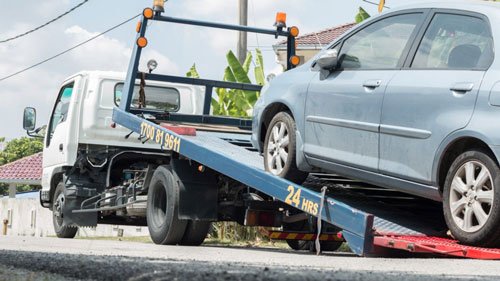
“It’s time to get that replaced.”
Those are words that no car owner wants to hear. After all, replacing – or repairing — a car part means that you’re going to spend money, and if you’re short on cash, you may understandably be tempted to put off getting something fixed. After all, if your car is fully functioning, and money is tight, why not wait a little while longer?
Indeed, sometimes the answer is, “Why not?”
But, take it from us, at Milex Complete Auto Care, unfortunately, sometimes the answer is: “It better not be much longer.”
That’s because some car parts, when they start weakening, can set off a chain reaction and cause other problems with your vehicle. Sometimes trying to save a $60 repair job can translate into a few months from now, or in even a few days, having a $600 problem. Putting off a car repair or delaying in getting a car part replaced is often akin to having not going to the dentist when you have an aching tooth. If you went to the dentist, you’d pay for the visit and for the cavity to be filled, and you wouldn’t exactly have a blast doing it. But it’s a lot better than waiting and later paying for a root canal.
Want us to be more specific about what sort of car repairs can be dangerous, financially and safety-wise, to put off? We can do that. These are just some of the problems you could experience, if you put off your car repairs.
Don’t delay: replacing your brake pads. You may well think, “So what? Brake pads aren’t brakes. I can still stop the car. Other than having my car screech every time I stop or slow down, what’s the harm? I’ll get used to the noise.”
Why that can be a problem: The brake pads protect the rotor, one of the mechanical parts of your brake. The pads press on the rotor and create friction that allows the car to slow down. If your brake pads start to fall apart, what’s left is basically metal grinding onto the rotor, which can than bend or break. Other pieces in the brakes, the calipers and pistons can be damaged, too. Basically, if your brake pads go, and you ignore it, you could be looking at having to eventually replace your entire braking system.
Don’t delay: your timing belt or serpentine belt. If you’re told your belts need replacing, you may easily figure that you can wait. After all, you drove the car into the garage perfectly fine. Why wouldn’t you be able to drive out?
Why that can be a problem: You probably can drive the car away – but you’ll be driving on borrowed time. If your timing belt breaks, your engine will stop working, which means you’ll stop driving, and, well, there goes your afternoon. But you’ll lose more than an afternoon. You could have some serious engine damage. Fortunately, a lot of newer cars don’t have timing belts – they have timing chains, that will last the entire lifetime of your car as long as you keep getting oil regularly (yeah, there’s always a catch).
But your car, new or old, does have a serpentine belt. Now, the good news is that newer cars have very good serpentine belts. Yours may last 60,000 to 100,000 miles, and if you sell your car before it gets too along in years, you may never have to replace it. If it is suggested you need a new one, you should probably get it. Your serpentine belt keeps your alternator humming, your power steering pump operating, your air-conditioning and possibly your water pump running efficiently. If your serpentine belt snaps, your car may stop driving – and if you’re really unlucky, instead of an inexpensive replacement, you may be looking at replacing your entire engine.
Don’t delay: getting your muffler replaced. “Who cares?” you might think. “So the car is a little loud? I can handle it.”
Why that can be a problem: No, paying for a new muffler isn’t fun – but paying for an entire exhaust system is even less so. And you may not need a new muffler. Maybe it just needs a quick fix. But if you wait and put off taking your car to at least be checked out, your muffler problems can damage other parts of your car. But there are other dangers, too, financial and a safety one. When your exhaust system is damaged, that affects your fuel – so you might find yourself spending money at the gas pump more and more – and far more worse – fumes could start coming into your car.
Don’t delay: getting your oil changed. Now, first of all, yes, you can drive awhile without getting your oil changed. If your car manual suggests getting your oil changed every 3,000 miles, you’re probably not risking trouble if you go 3,300 miles. Maybe you can go 5,000 miles.
Why that can be a problem: What you don’t want to do is become too lax about regular oil changes or forget them all together. Rarely to never getting oil for your car is a little like allowing yourself to become dehydrated on a hot day. Everyone needs water. Without it, we pass out. We eventually would die. Your car needs oil. In fact, instead of water, if you want an even better analogy, think of oil as your car’s blood. It’s, yes, that important.
Can you put off an oil change for a little while until your bank account is a little more robust? Sure, probably — as long as you haven’t already put it off forever. Replacing your oil is relatively inexpensive; replacing a car is not.